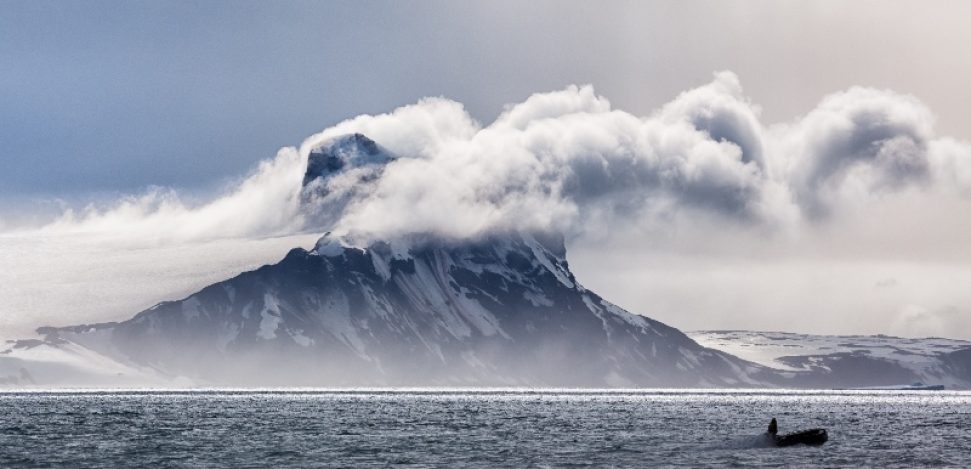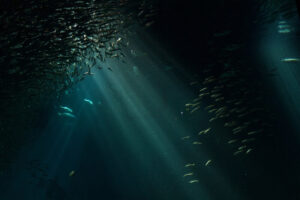Antarctica, the southernmost continent on Earth located at the South Pole, spans an expansive area of 14 million square kilometers, constituting approximately 5% of the Earth’s surface.
Predominantly composed of ice, it stands as the only place on the planet devoid of a government or a permanent population. Geographically linked to the Argentine and Chilean Patagonia, a significant portion of the Queen Maud Land islands are integral to Antarctica.
Getting to Antarctica
Various means exist for reaching Antarctica, with the most common being a cruise. Departing mostly from Ushuaia, Argentina, these cruises typically last 10 to 14 days, also originating from other countries like Chile, Australia, and New Zealand. These cruises often include excursions on boats and visits to historical and natural sites.
Another mode of transportation is by plane, with flights departing from Punta Arenas, Chile, and arriving at the Bernardo O’Higgins Base in Queen Maud Land. These flights usually take around three hours. Additionally, helicopter flights from Punta Arenas provide access to Antarctica.
Requirements for Traveling to Antarctica
To travel to the Antarctic Peninsula, a valid passport, tourist visa, or special permit is required. A travel permit for entering Antarctica is obtained through the UN’s Antarctic Agency, overseeing access and enforcing safety and environmental protection requirements.
Furthermore, specialized equipment is necessary for an Antarctic journey, including cold-weather clothing, winter boots, diving gear, climbing equipment, a sleeping bag, and a tent. Survival gear like a flashlight, ice saw, pocket flashlight, shovel, and whistle is also essential.
Preparation for Antarctic Travel
Preparation is crucial before embarking on an Antarctic journey, involving an understanding of safety and environmental protection regulations, as well as the necessary equipment. Travelers should stay informed about weather changes due to Antarctica’s extreme climate.
It’s important to note that Antarctic cruises can be expensive, and additional expenses for food and fuel must be considered. The required equipment for the trip can also contribute to the overall cost.
Activities in Antarctica
Once in Antarctica, tourists can engage in various activities such as exploring icebergs, observing seabirds, watching gentoo penguins, hiking, bird watching, and diving. Numerous historical and natural sites like Queen Maud Land, the Bernardo O’Higgins Base, and the Esperanza Base are also worth visiting. Travelers can explore the Antarctic coastline on boats and delve into the region’s geology.
NORTHERN LIGHTS OF ALASKA: GAZE AN AURORA BOREAL
Best Months to Visit Antarctica
The optimal months for visiting Antarctica are during the austral summer, spanning from December to February. These months offer warmer temperatures and less wind, allowing tourists to appreciate Antarctica’s beauty without contending with extreme cold or strong winds.
This period is also ideal for bird watching, as it coincides with the gathering of seabirds for nesting. It’s the prime time to observe penguins, seals and whales, and sea lions.
Steps to travel to antarctica
The process of traveling to Antarctica largely depends on how you wish to experience the region. In general, some of the steps to follow include:
-
Define the type of trip you want: Will you participate in a scientific expedition? Will you explore the continent on a vessel?
-
Look for an agency specializing in Antarctic travel: Several companies offer tourist packages in the region.
-
Purchase tickets: Once you’ve chosen an agency, buy tickets for the trip.
-
Prepare necessary documents: Travelers to Antarctica need medical insurance, permits, and visas!
-
Pack appropriately: Due to low temperatures, packing suitable clothing and equipment is essential.
Traveling to Antarctica is intriguing as it provides a unique opportunity to experience one of the most remote and wild places on Earth. Visitors can marvel at stunning glaciers, diverse fauna, and unique landscapes. Moreover, Antarctica plays a crucial role in global efforts to understand and mitigate climate change!
What is the cost for a trip to antarctica?
The price for a trip to Antarctica varies based on the duration of the journey, the time of year, and the activities you wish to undertake. Generally, costs range from $5,000 to $20,000 per person.
Despite the high cost, traveling to Antarctica is a unique and unforgettable experience. This continent is one of the most remote and inhospitable places on the planet, boasting exceptional flora and fauna. Additionally, Antarctica serves as a natural laboratory for numerous studies on climate change and the conservation of Antarctic ecosystems.
During your trip, you can enjoy various activities such as whale and penguin watching, walking on glaciers, kayaking in crystal-clear waters, and more. You can also visit scientific stations and learn about the research conducted there.
Ultimately, the price for a trip to Antarctica may be steep, but the experience and memories you gain are worth much more than the cost.
Reaching Antarctica as a travel destination is a unique and exciting experience. The best way to get there is through a cruise, providing an incredible view of the region and allowing you to enjoy the natural beauty of the continent.
ROCKY MOUNTAINEER TRAIN IN CANADA: BEST VIEWS
Expedition Cruises to Antarctica in 2024
This compilation encompasses cruise companies that operate their own vessels. Some travel agencies, like Adventures by Disney, Tauck, Abercrombie & Kent, and Albatros Expeditions, opt to charter ships for their Antarctica itineraries.
Atlas Ocean Voyages
Atlas Ocean Voyages presents World Navigator and World Traveller on their journeys to Antarctica.
Aurora Expeditions
Joining Greg Mortimer in Antarctica this season is Sylvia Earle, named after the renowned marine biologist. Both ships are purpose-built polar expedition vessels for Aurora Expeditions.
Hapag-Lloyd Cruises
German cruise line Hapag-Lloyd has introduced three expedition ships in recent years: Hanseatic Nature, Hanseatic Inspiration, and Hanseatic Spirit. Itineraries on Inspiration are conducted in English (and German), while German is the sole language on Nature and Spirit.
Hurtigruten
Hurtigruten’s latest expedition ship to venture to Antarctica is MS Fridtjof Nansen, joining sister ships MS Roald Amundsen and the recently upgraded MS Fram.
Lindblad Expeditions
National Geographic Endurance and National Geographic Resolution are Lindblad’s first year-round polar expedition new builds (including Antarctica). With 126 passengers, these ships boast amenities like yoga studios, spas, saunas, two infinity hot tubs each, bow observation decks, gyms, and bistro bars. Endurance will sail from Ushuaia, Argentina, to Dunedin, New Zealand, exploring the rarely visited Ross Sea.
Oceanwide Expeditions
While Oceanwide Expeditions mainly operates older ships, its newest vessel, MV Janssonius, with a Polar Class 6 rating, is designed for adventures in the Antarctic and Arctic. Another purpose-built ship is MV Hondius!
Ponant
Ponant’s newest ship, Le Commandant Charcot, featuring an indoor pool and a spa, along with vessels L’Austral, Le Boreal, and Le Lyrial, will navigate Antarctica in 2024.
These options offer luxury with a French touch, and note that various tour operators, including Adventures by Disney, Smithsonian Journeys, Abercrombie & Kent, and Tauck, charter from Ponant.
Quark
Quark’s Ultramarine is a sturdy, modern expedition cruise ship explicitly designed for polar cruises in the Arctic and Antarctic.
Scenic
Scenic Eclipse, resembling more of a yacht than a ship, accommodates only 200 passengers and offers comfort, exceptional food, and top-notch service on journeys to the farthest reaches of the planet, including Antarctica.
Equipped with a sub and two helicopters, Eclipse provides cruisers with different views of Antarctica.
Seabourn
Seabourn Venture marks the line’s initial venture into full expedition ships cruising to Antarctica, accommodating just 264 passengers in all-suite luxury, including the line’s first duplex suites.
Celebrity chef Thomas Keller oversees the onboard dining experience.
Silversea Expeditions
This season, Silversea Expeditions will operate four ships to Antarctica: the 296-passenger Silver Cloud, the 132-passenger Silver Explorer, the 298-passenger Silver Wind, and the new-to-fleet 200-passenger Silver Endeavour (formerly Crystal Endeavour).
All four provide an ultra-luxe, all-suite experience, featuring fine dining and outstanding service.
Viking
Viking Octantis and Viking Polaris, sister ships carrying 364 passengers each, mark Viking’s expansion into expedition cruising.
Onboard scientists, an enclosed marina for boarding Rigid Inflatable Boats and Zodiacs, and three different temperature-controlled pools are part of the indoor-outdoor Aquavit Terrace experience.
While the journey and preparation can be challenging, with the right guidance and appropriate tips, visiting Antarctica can be an unforgettable experience. It’s important to consider logistical details such as the right equipment, necessary permits, and being prepared for climate changes. However, the end result will be an unforgettable journey to a unique place!





 smokingpaper
smokingpaper



























